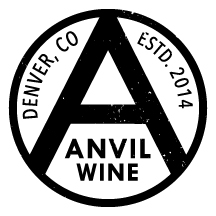Keller
Rheinhessen
Klaus Peter and Julia Keller have achieved a level of fame comparable only to Egon Müller in the Saar. In less than a decade, Keller has become one of the country’s greatest addresses. What makes this even more intriguing is that Keller is located in the Rheinhessen, one of the most maligned German winemaking regions. What’s more, they are located in what is usually considered the worst part of the Rheinhessen, the “Hügelland” – a double whammy if ever there was one.
Yet Keller has inspired an entire generation of young winemakers and single-handedly given birth to a Renaissance in the Rheinhessen. Storied vineyards that were all but forsaken – Kirchspiel, Hubacker, Morstein and Abtserde to name a few – are now seen as holy ground for Riesling and command some of the highest prices for dry wines in Germany.
Keller’s grand cru Rieslings are larger-than-life wines of incredible density and power; they are thoroughbreds. Yet what no one does better than Keller is to shape this considerable intensity into a form that is elegant, finessed — beautiful. Yes, a Keller GG is incredibly concentrated, lavish with detailed fruit, yet the minerality, the clarity, the form is what makes these wines unforgettable.
After sparking a revolution in his home region, Keller has in the last few years also made a small foray into the (once) more famous northern Rheinhessen, specifically a slope of vines called the “Roter Hang” (the “red slope,” so named because of the red soils). This is perhaps the more famous “big brother” to the Hügelland, yet there has been a wanting for wines of finesse and balance from this region. Now Pettenthal and Hipping, legendary sites of true renown, are receiving the Keller treatment and yielding superb wines in dry and off-dry form.
This is perhaps a good moment to point out that the dry GGs aren’t the only specialty at this estate, and some of the greatest Scheurebes, Rieslaners, Sylvaners, Auslesen, BA and TBAs to ever come out of the Rheinhessen are currently being produced at this address. (Klaus Peter’s mother is from the Mosel, and there is a deep fondness for this style of wine at Keller).
Then there are the Spätburgunders. The region’s rolling hills carved out of limestone make for an easy comparison to the Côte d’Or. It’s worth pointing out the Keller happens to be a Burgundy fanatic. Aside from working with Hubert and Roman Lignier and Eric Rousseau, Keller has a psychotic cellar of Burgundy. He’s channeling some of this, somehow, and the Pinots are riveting. “Red Riesling,” Klaus Peter will sometimes say.
Despite the accolades, despite the insatiable demand for his wines and the cult-like following, it should be said that Klaus Peter is an extraordinarily nice guy. He’s also a bit crazy, as all great people really are in one way or another. He’s a dynamo, a whirling dervish of ideas, insight and wisdom mixed with a crazy, happy, billowing undeniable and irrefutable energy.

